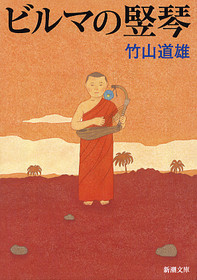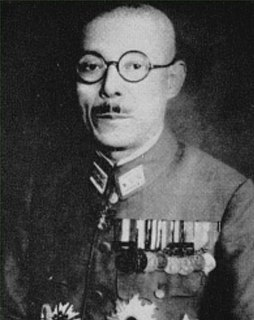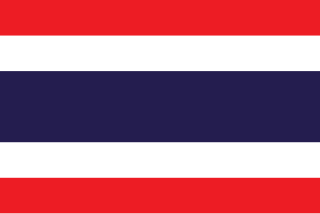 W
WBritish rule in Burma lasted from 1824 to 1948, from the successive three Anglo-Burmese wars through the creation of Burma as a Province of British India to the establishment of an independently administered colony, and finally independence. The region under British control was known as British Burma. Various portions of Burmese territories, including Arakan or Tenasserim were annexed by the British after their victory in the First Anglo-Burmese War; Lower Burma was annexed in 1852 after the Second Anglo-Burmese War. The annexed territories were designated the minor province of British India in 1862.
 W
WThe State of Burma was a puppet state of the Empire of Japan, created in 1943 during the Japanese occupation of Burma in World War II.
 W
WThe Anti-Fascist Organisation (AFO) was a resistance movement against the Japanese occupation of Burma and independence of Burma during World War II. It was the forerunner of the Anti-Fascist People's Freedom League.
 W
WThe Anti-Fascist People's Freedom League, was the dominant political alliance in Burma from 1945 until 1958 consisting of political parties and mass and class organizations.
 W
WBehind the Burma Road is a 1963 book by William R. Peers and Dean Brelis that describes the American guerrilla warfare operations, including those of OSS Detachment 101, during the Burma Campaign in the China Burma India Theater during World War II.
 W
WThe Burma Star is a military campaign medal, instituted by the United Kingdom in May 1945 for award to British and Commonwealth forces who served in the Burma Campaign from 1941 to 1945, during the Second World War.
 W
WThe Burmese Harp , also known as Harp of Burma, is a children's novel by Michio Takeyama. It was first published in 1946 and was the basis of two films by Kon Ichikawa – one released in 1956 and a color remake in 1985. Both films were major successes. A translation of the novel into English by Howard Hibbett was published in 1966 by Charles E. Tuttle Company in cooperation with UNESCO (ISBN 0-8048-0232-7).
 W
WBurmese Indians are a group of people of Indian origin who live in Myanmar (Burma). The term 'Burmese Indian' refers to a broad range of ethnic groups from India, most notably from present-day South Asian countries such as Bangladesh, India and also Pakistan. While Indians have lived in Burma for many centuries, most of the ancestors of the current Burmese Indian community emigrated to Burma from the start of British rule in the mid-19th century to the separation of British Burma from British India in 1937. During colonial times, ethnic Indians formed the backbone of the government and economy serving as soldiers, civil servants, merchants, moneylenders, mobile laborers and dock workers. A series of anti-Indian riots in the 1930s and mass emigration at the onset of the Japanese invasion of Burma in 1942 were followed in the 1960s by the forced migration of hundreds of thousands of ethnic Indians, exacerbated by internal conflict in Myanmar.
 W
WChih-Ping Chen was a student activist, military officer, statesman, and diplomat for the Republic of China from the 1920s through the mid-1970s. He served in student actions during the establishment of the Republic; was in charge of the building and operations of the Burma Road during World War II; represented the Republic of China in Burma, India, the Philippines, Iraq, Jordan, the Arab Federation, Libya, and Mexico; and was a Chief Delegate for China in eight annual United Nations General Assemblies. At the time of his passing, he held three positions as a member of the Central Committee of the Kuomintang, Advisor to the Ministry of Foreign Affairs, and National Security Advisor to the President.
 W
WField Marshal Phin Choonhavan was a Thai military leader and Deputy Prime Minister of Thailand. Phin was a leader of several coups against the government, most notably the 1947 coup. During the Second World War, he commanded the Phayap Army's 3rd Division before being made military governor of the Shan States, which Thailand had occupied during the Burma Campaign.
 W
WDefeat into Victory is an account of the retaking of Burma by Allied forces during the Second World War by the British Field Marshal William Slim, 1st Viscount Slim and published in the UK by Cassell in 1956. It was published in the United States as Defeat into Victory: Battling Japan in Burma and India, 1942–1945 by David McKay of New York in 1961.
 W
WColonel Sir Reginald Hugh Dorman-Smith, GBE was an Anglo-Irish diplomat, soldier and politician in the British Empire.
 W
WThe Forgotten Army – Azaadi Ke Liye is a web television series which premiered on Amazon Prime Video on 24 January 2020. The series is directed by Kabir Khan, the series is based on true events about the men and women in the Indian National Army (INA) led by Subhash Chandra Bose. The series stars Sunny Kaushal and Sharvari. Kabir Khan made his directorial debut with a documentary titled The Forgotten Army in 1999 which was aired by Doordarshan; and during a promotional talk, Kabir Khan said the current series is a project that is 20 years in the making, based on his initial documentary. The trailer released on 7 January 2020. The shooting took place in locations such as Thailand, Singapore, Malaysia and Mumbai.
 W
WThe Freedom Bloc, later known as Dobama-Sinyetha Asiayone, was a political party in Burma during World War II.
 W
WThe Greater East Asia Conference was an international summit held in Tokyo from 5 to 6 November 1943, in which the Empire of Japan hosted leading politicians of various component members of the Greater East Asia Co-Prosperity Sphere. The event was also referred to as the Tokyo Conference.
 W
WShōjirō Iida was a general in the Imperial Japanese Army in World War II.
 W
WThe Japanese government-issued rupee in Burma was a Japanese invasion money issued by the Japanese Military Authority, as a replacement for local currency during the Japanese occupation of Burma in the Second World War.
 W
WMasakazu Kawabe was a general in the Imperial Japanese Army. He held important commands in the Imperial Japanese Army during the Second Sino-Japanese War, and during World War II in the Burma Campaign and defense of the Japanese homeland late in the war. He was also the elder brother of General Torashirō Kawabe.
 W
WHeitarō Kimura was a general in the Imperial Japanese Army. He was convicted of war crimes and sentenced to death by hanging.
 W
WAdmiral of the Fleet Louis Francis Albert Victor Nicholas Mountbatten, 1st Earl Mountbatten of Burma, was a British Royal Navy officer and statesman, an uncle of Prince Philip, Duke of Edinburgh, and second cousin once removed of Queen Elizabeth II. During the Second World War, he was Supreme Allied Commander, South East Asia Command. He was the last Viceroy of India and the first governor-general of independent India.
 W
WSaharat Thai Doem was an administrative division of Thailand. It encompassed parts of the Shan States of British Burma annexed by the Thai government after the Japanese conquest of Burma.
 W
WField Marshal William Joseph Slim, 1st Viscount Slim,, usually known as Bill Slim, was a British military commander and the 13th Governor-General of Australia.
 W
WDobama Asiayone, commonly known as the Thakhins, was a Burmese nationalist group formed around the 1930s and composed of young, disgruntled intellectuals. Drawing their name from the way in which the British were addressed during colonial times, the party was established by Ba Thaung in May 1930, bringing together traditionalist Buddhist nationalist elements and fresh political ideals. It was significant in stirring up political consciousness in Burma, and drew most of its support base from students.
 W
WThe Thirty Comrades constituted the embryo of the modern Burmese army called the Burma Independence Army (BIA) which was formed to fight for independence from Britain. This was accomplished just before the majority of the Thirty Comrades returned with the invading Japanese Army initially through Southern Burma in December 1941.
 W
WOrde Charles Wingate, was a senior British Army officer, known for his creation of the Chindit deep-penetration missions in Japanese-held territory during the Burma Campaign of the Second World War.